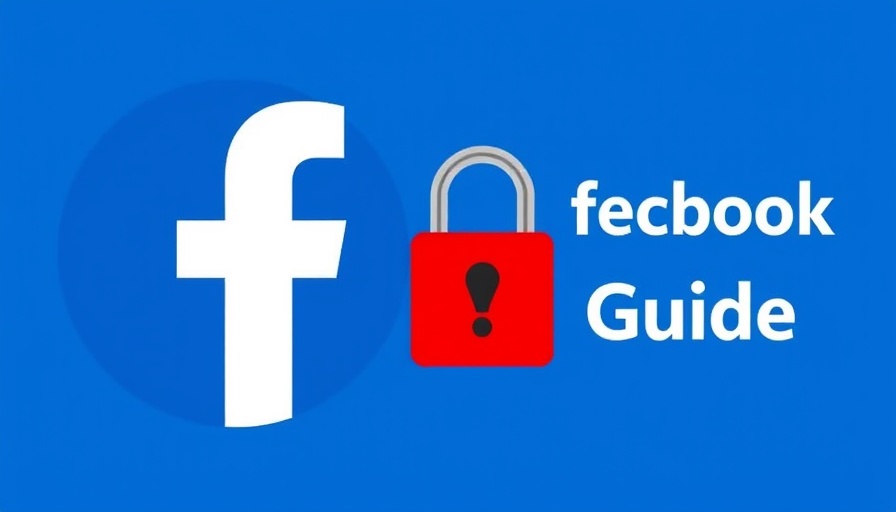
Understanding the Risks: Why Facebook’s Security Flaws Matter
As Facebook evolves, its role in the corporate landscape becomes more critical. However, many businesses are unaware of the growing security threats lurking within this powerful platform. Facebook’s architecture exposes user accounts to numerous risks, making it vital for companies to understand the implications of these vulnerabilities.
Facebook’s Business Model: A Double-Edged Sword
When exploring the flaws in Facebook's security, it becomes clear that its business model presents a significant weakness. Rather than providing a centralized, corporate account structure capable of safeguarding company interests, Facebook relies on linking Page administration to personal profiles. This interdependency transforms individual accounts into potential gateways for attacks. For example, if an employee's personal account is compromised, the entire corporate presence on Facebook can be at risk.
Analyzing Common Attack Vectors
Understanding the common methods through which attackers breach Facebook accounts helps businesses prioritize their defenses. Phishing remains a prevalent tactic, with hackers sending deceptive links to lure users into giving away their login credentials. Drawing on multiple reports, businesses recognize that even experienced administrators are not immune to such attacks, highlighting the need for robust security training.
The True Cost of a Compromised Account
When businesses lose access to their Facebook account, the implications extend beyond financial loss. The reputational damage can tarnish customer trust, and the recovery process can be fraught with frustration. Data shows that many companies experience unnecessary delays in regaining control of their accounts, often due to Meta's inadequate recovery procedures. Understanding these risks allows businesses to make informed decisions about their social media strategies.
Effective Strategies to Secure Facebook Accounts
To protect against potential breaches, businesses should adopt stringent security measures. Key practices include enabling two-factor authentication, regularly changing passwords, and training staff on recognizing phishing attempts. Additionally, utilizing business management tools designed explicitly for Facebook can enhance security protocols, ensuring that personnel access is tightly controlled and monitored.
Future Trends: The Evolution of Facebook Security Measures
As security threats evolve, so too will the measures necessary to counteract them. Industry experts predict an increased push from Meta to develop more sophisticated account protection features, potentially incorporating AI and machine learning for anomaly detection. Companies must stay vigilant, continuously refining their strategies to adapt to these innovations while mitigating risks.
Conclusion: Taking Action for Your Business’s Security
As companies increasingly rely on Facebook for marketing and engagement, understanding and addressing security threats is paramount. By proactively implementing security best practices, businesses can protect themselves from account theft, hacks, and account suspension. The cost of inaction is too great—a compromised profile can lead to financial losses, reputational damage, and operational disruption. Therefore, business owners must champion security as a vital component of their digital strategy.
 Add Row
Add Row  Add
Add 




Write A Comment